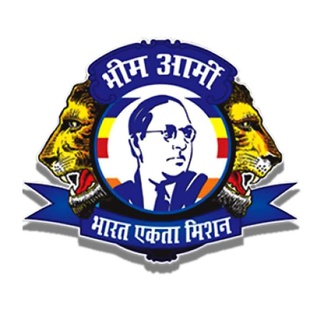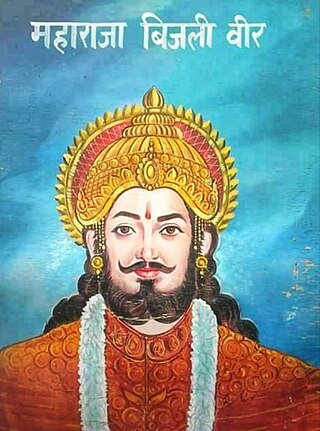Related Research Articles

The Bahujan Samaj Party (BSP) is a national level political party in India that was formed to represent Bahujans, referring to Scheduled Castes, Scheduled Tribes, and Other Backward Classes (OBC), along with religious minorities. According to Kanshi Ram, when he founded the party in 1984, the Bahujans comprised 85 percent of India's population, but were divided into 6,000 different castes. The party claims to be inspired by the philosophy of Gautama Buddha, B. R. Ambedkar, Mahatma Jyotiba Phule, Narayana Guru, and Chhatrapati Shahuji Maharaj.

Dalit, also previously known as untouchables, is the lowest stratum of the castes in the Indian subcontinent. Dalits were excluded from the four-fold varna system of Hinduism and were seen as forming a fifth varna, also known by the name of Panchama. Dalits predominantly follow Hinduism, with significant populations of the adherents of Buddhism, Sikhism, Christianity, and Islam. Scheduled Castes is the official term for Dalits, who get reservation under positive discrimination, as per the constitution of India.

Kanshi Ram, also known as Bahujan Nayak or Manyavar or Saheb, was an Indian politician and social reformer who worked for the upliftment and political mobilisation of the Bahujans, the backward or lower caste people including untouchable groups at the bottom of the caste system in India. Towards this end, Kanshi Ram founded Dalit Shoshit Samaj Sangharsh Samiti (DS-4), the All India Backwards (SC/ST/OBC) and Minorities Communities Employees' Federation (BAMCEF) in 1971 and the Bahujan Samaj Party (BSP) in 1984. He ceded leadership of the BSP to his protégé Mayawati who has served four terms as Chief Minister of Uttar Pradesh.

Chamar is a Dalit community classified as a Scheduled Caste under modern India's system of affirmative action. They are found throughout the Indian subcontinent, mainly in the northern states of India and in Pakistan and Nepal.
Ravidassia or the Ravidas Panth is a religion based on the teachings of Guru Ravidas. It was considered a sect within Sikhism until 2009. The Sikh gurus and the Guru Granth Sahib are considered reverential, but not central figures in the religion.
Jatav , also known as Jatava/Jatan/ Jatua/Jhusia /Jataau/Jatiya, is an Indian community that are considered to be a subcaste of the Chrmakar caste, who are classified as a Scheduled Caste under modern India's system of positive discrimination.Jatavs mostly live in the states of Uttar Pradesh, Madhya Pradesh, Rajasthan, and boundaries of Haryana as well as the Union Territory of Delhi in northwest India.

The Pasi is a Dalit (untouchable) community of India. Pasi refers to tapping toddy, a traditional occupation of the Pasi community. The Pasi are divided into Gujjar, Kaithwas, and Boria. They are classified as an Other Backward Class in Andhra Pradesh and Telangana. They live in the northern Indian states of Bihar and Uttar Pradesh.
Rao Manik Chand Jatav- was a Dalit activist and Member of 1st Lok Sabha from Sawai Madhopur, Rajasthan.
Saheed Chetram Jatav was a freedom fighter who was born on 19 July 1827. who participated in the Indian Rebellion of 1857. He joined the mutiny on 26 May 1857 in the Soro region of Eta district, North-Western Provinces. Them were tied to a tree and shot.

Keshav Prasad Maurya is an Indian politician, currently serving as the Deputy Chief Minister of Uttar Pradesh. He is a member of the Bharatiya Janata Party. Maurya was associated with right wing Hindu organization Rashtriya Swayamsevak Sangh, before entering active politics through BJP. He was also involved in cow protectionism in his early life. Before 2017 Uttar Pradesh Legislative Assembly elections, he was made state president of the BJP, and after the victory of BJP, he was appointed as Deputy Chief Minister of Uttar Pradesh in the first Yogi Adityanath Government. Maurya again contested the legislative assembly elections in 2022 from Sirathu Assembly constituency, losing to Pallavi Patel of Samajwadi Party. However, he was given second term as Deputy CM in the second Yogi Adityanath government.
Gutiyari Lal Duwesh is an Indian politician and member of the 15th and the 16th Legislative assemblies of Uttar Pradesh. Duwesh represented the Agra Cantt. constituency of Uttar Pradesh and is a member of the Bahujan Samaj Party political party. On 12 March 2019, in Lucknow he has joined Bhartiya Janata Party and left Bahujan Samaj Party having the Supremo Km. Mayawati. This is one of the biggest shocks to the B.S.P. because since then, nothing is running smoothly in B.S.P. community.
Kali Charan Suman is an Indian politician and member of the Sixteenth Legislative Assembly of Uttar Pradesh. Suman is a member of the Bahujan Samaj Party and represented Agra Rural constituency of Uttar Pradesh.
Mahendra Singh is an Indian politician and He was a member of the 14th and the 15th Legislative Assemblies of Uttar Pradesh in the year 2002 and 2007, respectively. Mahendra Singh represented the Koil constituency of Uttar Pradesh and Minister of State in the Mayawati Ministry and is a member of the Bahujan Samaj Party political party. Citing disgruntlement with Former Chief Minister of Uttar Pradesh Ms. Mayawati, he quit the party in January 2018 . The party then released a statement claiming that he had been expelled for "anti-party activities". and Almost after 11 Month, He joined the Rashtriya Lok Dal having the Ajit Singh (politician) in December 2018, which he also left after 6 months because of some internal issue. and on 12-Sep-2021, in New Delhi, he joined Azad Samaj Party in presence of Bhim Army chief Chandrashekhar Azad Ravan and core member in the party.

The Bhim Army, alternatively Bheem Army or the Bheem Army Bharat Ekta Mission is an Ambedkarite and Dalit rights organisation in India. It was founded by Satish Kumar, Vinay Ratan Singh and Chandra Shekhar Aazad in 2015. The organisation runs more than 350 free schools for Dalits and Bahujans in the districts of Saharanpur, Meerut, Shamli and Muzaffarnagar in western Uttar Pradesh. The organisation is named after B. R. Ambedkar.
Dharam Prakash was an Indian politician. He was a Member of Parliament representing Uttar Pradesh in the Rajya Sabha the upper house of India's Parliament as member of the Indian National Congress.
Swami Achhootanand, also known as Achutanand or Hariharanand, was an Indian anti-caste intellectual, Dalit writer, and social reformer. A former Arya Samajist, he became disillusioned with the Arya Samaj and established the Adi Hindu movement. He was a poet, critic, dramatist, and historian.
Akhil Bharatiya Jatav Mahasabha was founded in 1917 under the leadership of Manik Chand Jatav and Swami Achootanand. It was formed to promote the interests of Jatav for seeking social upliftment into Kshatriya Rajput varna.

Maharaja Bijli Pasi was a king from the Pasi community, According to popular belief, he ruled part of what is now Uttar Pradesh.
Ramnarayan Yadavendu (1909–1951) was a Hindi writer, storyteller, essayist and social reformer.
Pyare Lal Kureel 'Talib' was an Indian politician, Urdu poet and Dalit activist.
References
- ↑ Narayan, Badri (11 May 2011). The Making of the Dalit Public in North India: Uttar Pradesh, 1950–Present. Oxford University Press. ISBN 978-0-19-908845-4.
- ↑ Hunt, Sarah Beth (7 August 2014). Hindi Dalit Literature and the Politics of Representation. Routledge. ISBN 978-1-317-55951-1.
- ↑ Kshīrasāgara, Rāmacandra (1994). Dalit Movement in India and Its Leaders, 1857-1956. M.D. Publications Pvt. Ltd. ISBN 978-81-85880-43-3.
- ↑ Ahuja, Amit (26 July 2019). Mobilizing the Marginalized: Ethnic Parties Without Ethnic Movements. Oxford University Press. ISBN 978-0-19-091642-8.
- ↑ Pai, Sudha (1 August 2002). Dalit Assertion and the Unfinished Democratic Revolution: The Bahujan Samaj Party in Uttar Pradesh. SAGE Publications India. ISBN 978-81-321-1991-3.
- ↑ Singer, Milton B.; Cohn, Bernard S. (1970). Structure and Change in Indian Society. Transaction Publishers. ISBN 978-0-202-36933-4.
- ↑ Kumar, Vivek (2001). Dalit Assertion and Bahujan Samaj Party: A Perspective from Below. Bahujan Sahitya Sansthan.